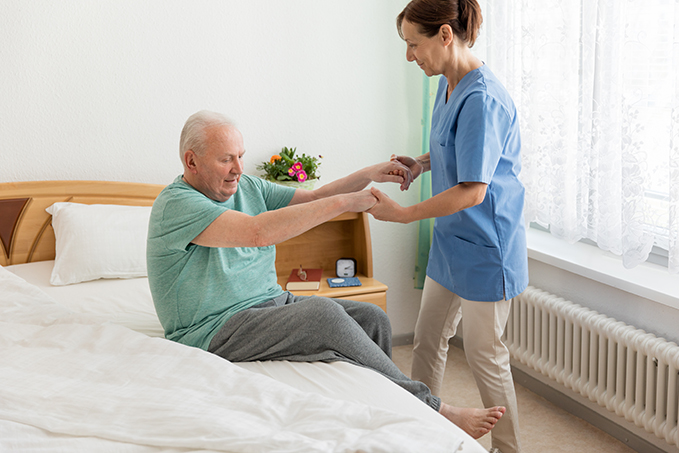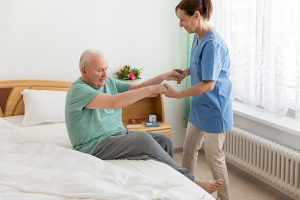

Learn how to best manage pressure sores in aging loved ones.
Bed sores, also known as pressure sores, affect nearly one in every ten older adults, and are even more frequent in people who smoke, are living with a chronic disease like diabetes, or who have fragile or thin skin. Not only are bed sores very painful, they can also evolve into extremely dangerous infections. That’s why it’s vital to learn how to effectively prevent and manage pressure sores in aging loved ones.
Pressure sores occur from reduced blood flow after someone stays in one place for an extensive period of time. For individuals with limited mobility or who are confined to a bed or wheelchair, the battle against bed sores can seem endless. Yet it is imperative for those providing care for an elderly loved one to learn as much as possible about bed sore prevention.
So how can you prevent pressure sores in aging adults? These tips can help protect an older adult’s sensitive skin from dangerous and painful sores:
Alter Positions as Often as Possible
- Help the aging adult change to a different position every couple of hours if confined to a bed, or every hour if confined to a wheelchair.
- Utilize lifting devices to protect against friction during repositioning.
Use Supportive Devices
- Position specialized pads and cushions:
- In between knees and ankles
- Under calves to protect heels
- To lie at an angle, protecting hips
Help With Active Living and a Healthy Diet
- Encourage the senior to quit smoking.
- Ensure good hydration.
- Seek advice from the person’s physician for dietary and supplement tips for improved skin health.
- Implement daily exercises per doctor’s guidelines.
Maintain Skin Care
- If the skin is exceedingly moist, apply talcum powder.
- Massage areas vulnerable to bed sores to boost circulation.
- Clean the skin with a mild soap and warm water, and apply lotion.
If the aging adult does develop a pressure sore in spite of taking the proper precautions, it may advance through these four stages:
- Stage 1: A bruise-like patch can form on the skin which could be warmer in comparison with surrounding skin. The area may itch or burn.
- Stage 2: An open sore develops from the bruise. This can look like an abrasion or blister and be painful and discolored.
- Stage 3: As the sore becomes worse, the surrounding skin becomes darker and the area is deeper.
- Stage 4: During this stage, damage occurs to the muscle, bone, and/or joints, and a bone infection known as osteomyelitis or even sepsis (a life-threatening blood infection) can occur.
Contact the person’s doctor as soon as possible in the event of a pressure sore. Endeavor In Home Care can also help by providing daily skin inspections to help detect vulnerable areas of the skin and the early signs and symptoms of pressure sores. Our professional care team can also help with walking, position changes, and transferring to decrease the risk of developing bed sores. Our expert in home care in Gilbert and the nearby areas is just a phone call away. Contact us online today or at 480-498-2324.


